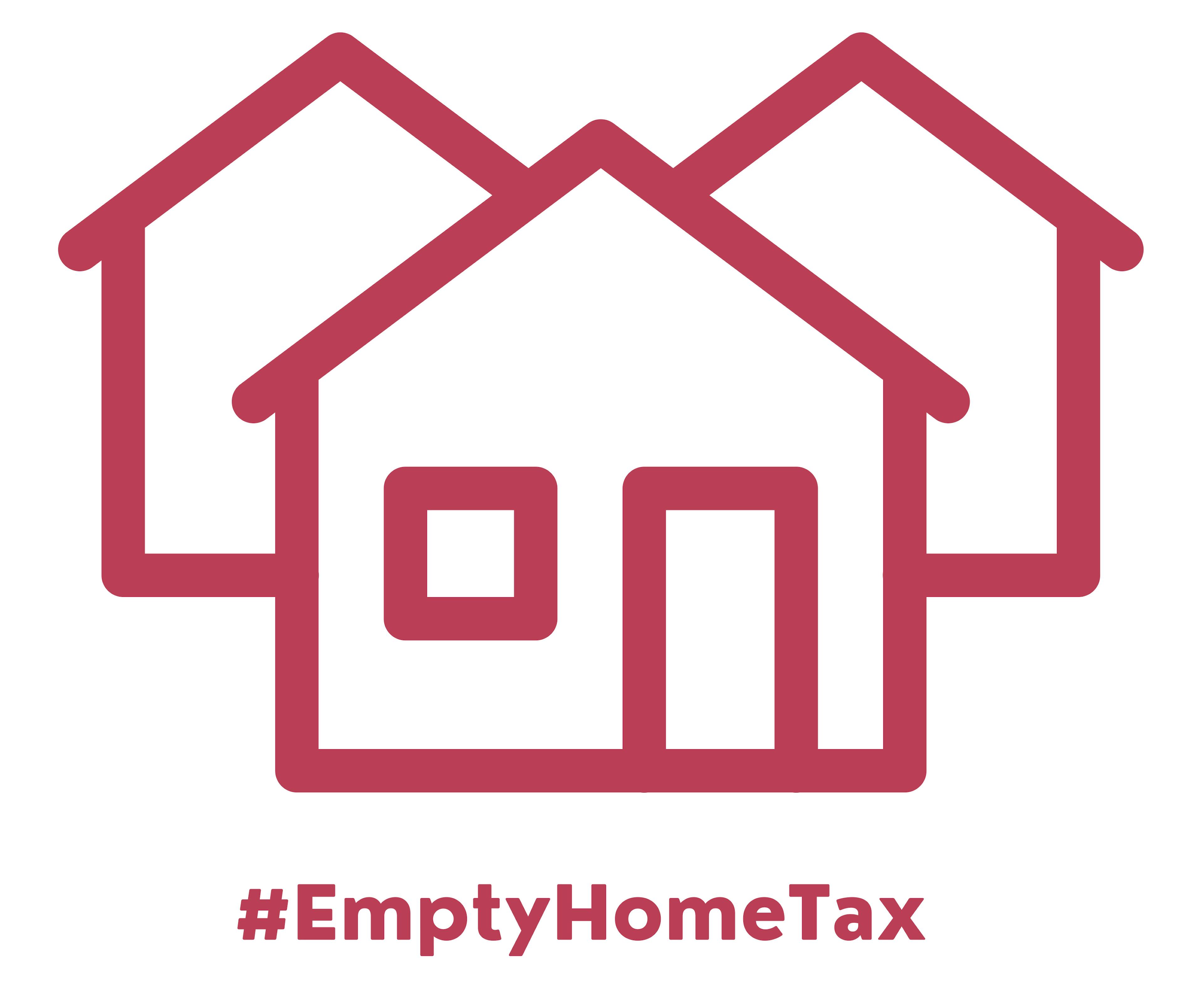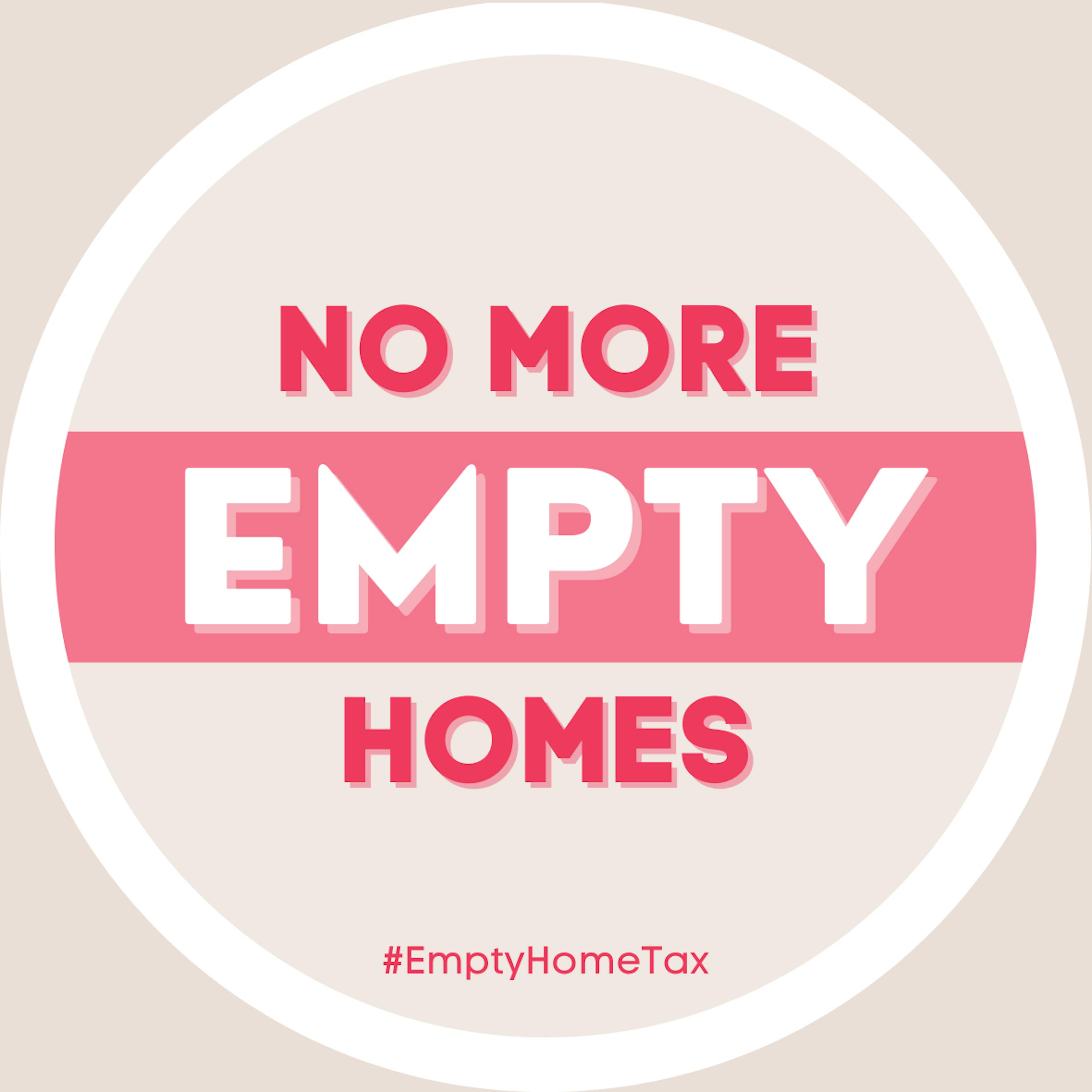DSA Ecosocialists support the Empty Home Tax! Why Affordable Housing Matters from a Radical Environmental Perspective
As one of the most expensive cities in the US in which to live, Santa Cruz suffers from a massive housing affordability crisis that prices out many of its residents. We can’t afford to leave homes sitting empty. As the wealthy maintain second homes that remain unoccupied for much of the year, the people who want to live and work in Santa Cruz—those who contribute most to the city’s diversity and its vibrant communities—cannot find affordable housing.
With the Empty Home Tax (EHT), owners will be encouraged to either put these homes to good use by renting them out, or pay a tax to keep them empty for most of the year. According to census data, around 2,283 housing units in the City are vacant. By disincentivizing empty homes in Santa Cruz through taxing properties left unoccupied, the EHT stands to raise more than $3 million a year in city revenue. That will help the city fund affordable housing, making Santa Cruz more affordable and inclusive.
DSA Santa Cruz’s Ecosocialist Working Group endorses the EHT, because we recognize it as an ecosocialist issue.
There are many reasons to support the EHT from a mainstream sustainability angle, one that stresses its many ecological and environmental benefits. By helping to mitigate the housing crisis by funding more affordable housing (even if it won’t ultimately fix the crisis), the EHT will discourage waste. We know that keeping empty homes maintained and landscaped needlessly wastes energy, including precious water resources, even as our region faces ongoing drought. By housing people in existing homes, and helping to provide more affordable housing stock, the EHT will help workers in Santa Cruz to live locally. Living nearer to their places of employment means cutting down on commuter traffic, lowering the use of gas-guzzling cars, and reducing noise and air pollution. That will benefit us all. By taking advantage of existing housing, the EHT will also lower the threat of evictions and mitigate houselessness, which can have negative impacts on natural environments.
Census data shows that 8% of our housing units sit vacant—even as students live in cars, schools struggle to retain teachers who can’t afford to live in the region, and service and healthcare workers are forced to work many jobs just to make rent. As many know all too well, Santa Cruz has become a place where a shocking 60% of renters are rent-burdened, some paying more than 70% of their income in rent. More than half of the city’s residents are renters. In addition, houses sit vacant even as houseless residents of our city continue to contend with life-limiting precarity, dehumanizing social media, and toxic environmental conditions. Setting up camp near highways without adequate sanitation, waste management, or social services because there’s nowhere else to go, they face the relentless cruelty of complaint-driven police sweeps, tickets, and fines.
Homes that sit empty are an affront to basic human rights, especially the right to dignified housing for all. By beginning to decommodify housing, the Empty Home Tax—part of DSA’s “Tax the Rich!” politics of economic justice—supports ecosocialist values by pushing housing to serve peoples’ needs, rather than owners’ and landlords’ greed. According to a comprehensive understanding of environment that links environment to labor justice, social equity, human rights, and ethical relations to nature (including the more-than-human flora and fauna comrades we coexist with)—the EHT will help us build the ecosocialist city we want.

The EHT also aligns with DSA’s radical Green New Deal agenda—a quality jobs and justice program for decarbonization over the next ten years—already endorsed by the Santa Cruz City Council (even if it now largely ignores that commitment). The EHT expresses fundamental environmental and climate justice principles, including by creating a more stable and healthy community overall. In making for a more inclusive and affordable city, the EHT promises to create a climate of greater racial, ethnic, and economic diversity in our community.
With the Empty Home Tax, we cultivate a city that supports a multiracial working class.
The EHT also expresses ecosocialist principles that may be less obvious, but which promote the world we want to live in. Ecosocialism nurtures and supports multispecies relationships and an ethic of reciprocity, rather than one of domination toward the more-than-human world (“more-than” rather than “nonhuman” because biodiverse life forms cannot simply be measured by what human qualities they may lack, reinforcing an anthropocentric logic). This ethic of reciprocity is a principle inspired by Indigenous relations to land—you love the land and the land loves you back, as explains the environmental scientist, popular author, and enrolled member of the Citizen Potawatomi Nation, Robin Wall Kimmerer. It’s also a value found in Marx’s ecology, which deeply understands the negative stamp capitalism leaves on the natural world when subjected to profit-driven exploitation and domination.
Is it surprising that just as multitudes face cruel evictions and forced moves—displaced from their homes by a profit-obsessed system that would rather see housing sit empty than accommodate the most needy—we simultaneously face an ecological crisis of habitat fragmentation, climate breakdown, air and water pollution, and uncontainable wildfires that are evicting countless species from their homes, subjecting them to premature death, even extinction?
Just as colonialism dispossesses Indigenous people of their land, sovereignty, and forms of life, capitalism’s endless accumulation of value devalues the lives of those who labor, and destroys the environments on which the economic system depends for resources. Rendering homes affordable and livable—rather than so many investment opportunities and luxury possessions of the rich—is a small step toward reversing this process. Through it, we begin to decolonize property and prioritize human needs through exchanging with others for mutual benefit and thriving.

The EHT will create a pathway for wealthy people who don’t live here fulltime to support the community they are joining. It will create a sustained local funding source. These support ecosocialist principles of reciprocity, which can help repair ecosystems as much as render housing more accessible.
Many know that the etymologies of ecology and economy both have “home” in their derivations, each rooted in the Greek oikos (meaning “household,” “home,” “place to live”). Both terms are intimately linked to taking care of the home, knowing and managing the household, whether it’s the planetary housekeeping of environmental care, or the economic bookkeeping for community welfare. Empty homes hollow out that meaning, creating instead vacancies of emptiness, zones of abandonment, detrimental to community caretaking and to the values of reciprocity.
In order to promote the thriving of all, both systems—economic and ecological—ought to express the fundamental ecosocialist principles of reciprocity, social equity, and collective wellbeing. The Empty Home Tax does just that, supporting a solidarity economy geared toward satisfying the needs of all community members. Rather than suffering an economics of financial extraction—of rents, of labor, of time, of nature—let’s instead care for our home in all ways environmental, making Santa Cruz better, and more affordable, for everyone.
Join us, get involved, and support the Empty Home Tax! To learn more, see the EHT website’s Frequently Asked Questions.
DSA Santa Cruz’s Ecosocialist Working Group organizes to fight capitalism and build local power for climate, environmental, and multi-species justice. We work to spread an understanding that capitalism and imperialism must be fought against to promote the health of our planet and all of its people through public information campaigns, agitprop, literature, and mutual aid. It is not simply enough to Decarbonize, we must also Decapitalize and Decolonialize. In Santa Cruz, we view our work as interconnected to a wide range of campaigns: working on housing justice (including for the unhoused) and fighting against gentrification is integral to the environmental health of our city; and working towards a radical Green New Deal locally and nationally, countering the promotion of a green capitalist future through promoting ecosocialist ideas at Earth Day and Climate Strike events, and through public art and creative propaganda. ecosocialism@dsasantacruz.org
